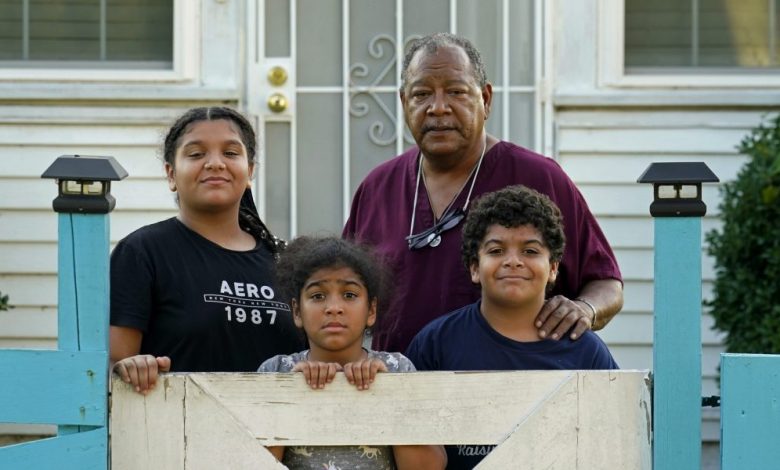EPA: Louisiana rubber mill poses cancer risk to black community

Federal officials on Tuesday sued a chemical manufacturer in Louisiana, alleging it posed an unacceptable risk of cancer to the nearby mostly black community and demanding a reduction in emissions of pollutants.
Denka Performance Elastomer LLC manufactures synthetic rubber that releases the carcinogen chloroprene and other chemicals at levels high enough that the federal complaint says it poses an unacceptable risk of cancer. Children are particularly at risk. There is a primary school half a mile from the complex.
The former DuPont plant has reduced its emissions over time, but the Justice Department, suing on behalf of the Environmental Protection Agency, said the plant still poses “an imminent and significant threat to public health and welfare.” , including an increased risk of cancer.
“The company has not moved far enough or fast enough to reduce emissions or keep the surrounding community safe,” EPA Administrator Michael Regan said in a statement.
Denka, a Japanese company that bought the rubber factory in 2015, did not immediately respond to news for comment. A company spokesman said in September that advocates have described a crisis that “just doesn’t exist.”
Denka’s facility makes neoprene, a flexible, synthetic rubber used to make general goods such as wetsuits, laptop sleeves, orthopedic braces, and automotive seat belts and hoses. Chloroprene is a liquid raw material used in the manufacture of neoprene that is released into the air from various areas of the facility.
Deputy Attorney General Vanita Gupta said every community, regardless of its demographics, should be able to breathe clean air and drink clean water. “Our suit aims to stop Denka’s dangerous pollution,” she said in a statement.
The lawsuit requires Denka to eliminate hazardous chloroprene emissions. Air monitoring consistently shows long-term concentrations of chloroprene in the air near Denka’s LaPlace facility reaching 15 times the recommended levels for 70-year exposure to the chemical, the complaint said.
The complaint is the latest move by the Biden administration targeting pollution of an 85-mile stretch from New Orleans to Baton Rouge, officially known as the Mississippi River Chemical Corridor but more commonly referred to as Cancer Alley. The region contains several hotspots where cancer risk is well above levels considered acceptable by the EPA. The White House has prioritized environmental enforcement in communities overburdened by long-term pollution.
Regan visited the community in 2021 during a five-day trip from Mississippi to Texas that highlighted low-income, mostly minority communities impacted by industrial pollution. A Toxics Release Inventory compiled by the EPA shows that minority groups make up 56% of people living near toxic sites such as refineries, landfills and chemical plants. Negative effects include chronic health problems such as asthma, diabetes and high blood pressure.
Last year, the EPA said it had evidence that black residents were at increased risk of cancer from the chemical plant and that state officials were allowing pollution levels to remain too high. The agency’s letter was part of an investigation under the Civil Rights Act of 1964, which states that no one receiving federal funds may be discriminated against on the basis of race or national origin.
Local activists have long targeted the facility, arguing that aerial surveillance nearby shows the facility poses a danger to residents of the parish of St. John the Baptist.
The Justice Department agreed in its complaint, saying the facility puts thousands of people at a lifetime risk of cancer “many times greater than what is normally considered acceptable.”
Mary Hampton, president of Concerned Citizens of St. John the Baptist Parish, said emissions at the facility must come down quickly.
“It’s a positive step in the right direction,” she said of the federal lawsuit. “It was foreseeable for a long time.”
Beverly Wright, executive director of the Deep South Center for Environmental Justice, said the DOJ’s lawsuit helps ensure black communities in Louisiana don’t have to live with deadly pollution.
“For decades, black families have been human experiments for the Louisiana petrochemical industry,” she said.
__
Phillis reported from St. Louis.
__
The Associated Press receives support from the Walton Family Foundation for reporting on water and environmental policies. The AP is solely responsible for all content. All of AP’s environmental reporting is available at https://apnews.com/hub/climate-and-environment
Learn how to navigate and build trust in your organization with The Trust Factor, a weekly newsletter exploring what leaders need to succeed. Login here.



